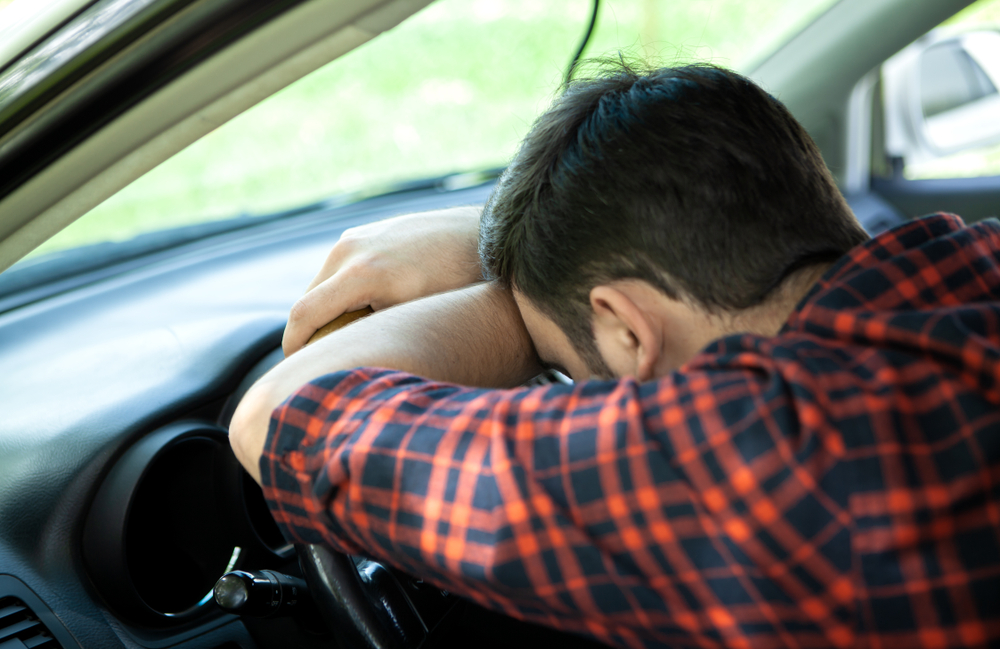Teenage Drunk Drivers: Don’t Let Your Teen Become a Statistic

You hear the story all too often. Another avoidable death as a result of teenage drunk drivers. There are far too many friends, parents, and siblings who have lost loved ones due to teen drunk driving. With school and related social events in full swing, it can be tempting for students to get behind the wheel after drinking underage.
The worst part is that many of these tragedies are preventable. You can save lives through awareness and by taking the pledge not to drink and drive, or to get in a car with someone who has been drinking. Here’s what parents and teens need to know about teenage drunk drivers and how they can avoid becoming yet another statistic.
What is Drunk Driving for Teens?
Legally, drunk driving means getting behind the wheel of a vehicle with a blood alcohol content (BAC) of .08 or higher. In North Carolina, that’s true for anyone over the age of 21. For any driver under the age of 21, our state has a zero-tolerance policy for underage drinking and driving. This means that any amount of alcohol in a teen driver’s system could result in drunk driving charges. Penalties include fines and license suspension.
There Are Fewer Teen Drunk Drivers, But They Are Still a Big Problem
It can be easy to become overwhelmed when faced with disturbing facts concerning teen drunk driving. Let’s start off with some positive news about drunk driving statistics:
- There has been a 37% decrease in deadly drunk driving crashes nationwide since 1982.
- There has been an 83% decrease in drunk driving fatalities for drivers under the age of 21.
That’s great news. And it’s a big step in the right direction. Now it’s time for the bad news about impaired driving:
- An estimated 25% of teen car crashes involve an underage drinking driver.
- 27% of teenage drivers who were killed in traffic crashes had been drinking.
How do we prevent these deaths? How do we spare families the pain of losing their children as a result of senseless accidents? It starts by preventing underage drinking in the first place.
What Are the Causes Behind Teen Drunk Driving?
You would be hard pressed to find someone unaware of the dangers of drunk driving. At this point, practically everyone knows that driving under the influence is a bad idea. So why do they keep doing it? And why do teens continue to drink and drive?
It starts with many teens being unaware of the full consequences of underage drinking. Alcohol has serious effects on the human brain. These effects are further emphasized when it comes to developing, teenage brains. But what are the ways that alcohol affects the teenage brain? And how do these effects lead to teen drunk driving?
- Consciousness – Teenage brains and adult brains respond to alcohol in drastically different ways. For adults, it’s not uncommon for alcohol to have short-term effects such as feeling sleepy or slurring their words. Teens aren’t as quick to notice these effects. Because of this, they’re more likely to think that they’re okay to drive. This can lead to many teenage drunk drivers getting behind the wheel of a car, putting both themselves and others at risk.
- Impaired Judgment – No one is making smart decisions while under the influence of alcohol. This is doubly true for teenagers. Not only are teens less likely to notice the short-term effects of alcohol in the same way as adults, they are also more prone to lapses in judgment. This lack of judgment can mean choosing to get behind the wheel of a car. The same goes for choosing to get into a car with someone who has been drinking. We can all agree that both of these are profoundly bad decisions.
- Lack of Impulse Control – Everyone knows that teens can be impulsive. This is true when they are stone-cold sober. It should not come as a shock to learn that impulsive behavior in teens worsens under the influence of alcohol. Alcohol suppresses the brain’s usual hormonal responses to stress. This can lead to students making rash decisions or not reacting to their surroundings quickly.
- Loss of Coordination – It’s not a shock to learn that underage drinking can affect coordination. This is because alcohol directly affects the cerebellum. The cerebellum is the part of the brain that controls muscle coordination, balance, and even helps in the formation of memories. By affecting the cerebellum, alcohol disrupts the body’s motor functions. This can greatly reduce reaction time, which is a key reason why driving under the influence is so dangerous.
- Blacking Out – The possibility of a blackout can be one of the scariest things that can result from underage drinking. A blackout and passing out are not the same thing. When someone passes out, they lose consciousness entirely and are immobile. A blackout is when someone still appears to be conscious, but has no memory of the events that are occurring. Someone experiencing a blackout may still carry on conversations and make decisions. The key difference is that they may have no idea of what they are actually doing. This could lead someone to get behind the wheel of a car and not even know they are driving.
Prevent Teenage Drunk Driving by Preventing Underage Drinking
According to a 2023 survey commissioned by the North Carolina ABC Commission, almost two-thirds of students tried alcohol during their middle school years. In fact, the same survey found that most children try alcohol for the first time by age 14. What this means is that the problem starts much earlier than many people realize.
This is why it’s so vital that parents, teachers, and family members start the conversation about underage drinking and have that conversation often. By keeping teens informed about the dangers of alcohol, parents can make them think twice before drinking or getting into a car with someone who has been drinking.
Set the Example You Want Your Teen to See
The responsibility for preventing teenage drunk driving falls on more than the teens themselves. It’s important that parents be involved as well. Teens don’t always show it, but they notice the behaviors and actions of their peers and role models in their lives. They will often imitate the actions of their parents. This is why it’s so crucial that parents lead by example.
Parents need to set the sort of example they expect from their children. That means not drinking to excess in the home. It also means never getting behind the wheel of a car after you’ve been drinking. Always demonstrate moderation and responsible behavior around your children. By doing so, you’re laying a foundation for smart decisions later on in life.
Start the Conversation and Stop Teenage Drunk Driving
Most children are unaware of the full consequences of alcohol, how it affects the brain, and how it could affect the rest of their lives. This is why it’s so important for parents to speak to their children about the dangers of underage drinking.
We understand that having this talk can be awkward or even uncomfortable. We also know that it doesn’t have to be this way. Talk It Out is here to help you start the conversation about underage drinking.
With a whole range of conversation starters including how to begin, what you can say, what you can do, and why it matters, we have everything you need to talk it out with your teen. Don’t wait until it’s too late. Start the conversation and prevent underage drinking today.



